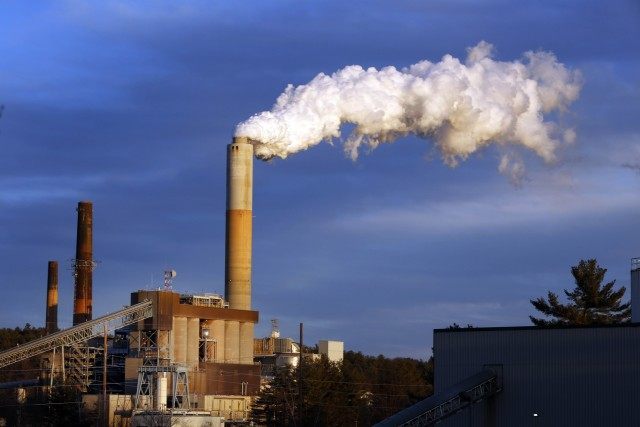Fossil fuel companies are benefiting from a global subsidy of £3.4 trillion a year, the International Monetary Fund has declared. The figure dwarfs that of government handouts for renewable energies, which amount to £77 billion a year. But closer inspection reveals the fossil fuel related sum not to be a subsidy, as it amounts to nothing more than the alleged costs to governments of dealing with fossil fuel pollution.
The IMF have insisted that their figure is “shocking,” but “extremely robust”, and are using it to lobby for an end to “subsidies” for fossil fuel companies on both health and economic grounds, the Guardian has reported.
“When the number came out at first, we thought we had better double check this!” said David Coady, head of the IMF’s fiscal affairs department. But he said the broad picture was “extremely robust”, adding: “It is the true cost associated with fossil fuel subsidies.”
His colleague Vitor Gaspar, the IMF’s head of fiscal affairs and former finance minister of Portugal agreed, saying “These estimates are shocking. Energy prices remain woefully below levels that reflect their true costs.”
According to the IMF’s report, cutting the ‘subsidies’ would reduce global emissions by 20 percent, and halve the number of deaths from outdoor pollution, saving around 1.6 million lives a year. They also envisage that making fossil fuel companies pay for pollution would be a “game changer” for governments, who could use the newly released economic resources to pay for education, health and infrastructure.
Lord Nicholas Stern, a climate economist at the London School of Economics, said: “This very important analysis shatters the myth that fossil fuels are cheap by showing just how huge their real costs are. There is no justification for these enormous subsidies for fossil fuels, which distort markets and damages economies, particularly in poorer countries.
Stern added that he considered the IMF’s figure to be an underestimate: “A more complete estimate of the costs due to climate change would show the implicit subsidies for fossil fuels are much bigger even than this report suggests,” he said.
The IMF has acknowledged that ending the so-called subsidy would increase energy prices, but argue that it would be acceptable to do so as wealthy people benefit most from the supposed subsidy. According to the IMF, the wealthiest 20 percent receive six times the amount of subsidy as the poorest 20 percent in low and middle income countries, presumably simply because they use more energy than poor people.
it has also revealed it’s true motive for releasing the figure: whitewashing the amount governments spend on actual subsidies for renewable energies each year by piling costs onto fossil fuels until they become unsustainable. “If we get the pricing of fossil fuels right, the argument for subsidies for renewable energy will disappear. Renewable energy would all of a sudden become a much more attractive option,” said Coady.
Deaths thanks to cold weather in the UK reached a 15 year high last winter, with 33,800 people dying from the cold in the six weeks between the beginning of December 2014 and mid-January 2015, the equivalent of one person every seven minutes dying of cold throughout the winter
In February, Malcolm Booth, chief executive of the National Federation of Occupational Pensioners, said: “Excess winter deaths look like rising above the exceptional 2008-09 total and potentially reaching above 40,000 – and that is a disaster for the elderly in Britain.
“Winter deaths are a tragedy for families of those affected but it appears the underlying causes of these deaths have still not been properly addressed.”
Professor Dame Sally Davies, the Department of Health’s chief medical officer, wrote in Public Health England’s Cold Weather Plan for England 2014-15: “Excess deaths are not just deaths of those who would have died anyway in the next few weeks or months due to illness or old age.
“There is strong evidence some of these deaths are indeed “extra” and are related to cold temperatures, living in cold homes as well as infectious diseases such as influenza.”
The high death rate prompted campaigners to campaign for an end to fuel poverty, defined as having to spend more than ten percent of an income on fuel payments. According to statistics from the Department of Energy and Climate Change for 2012, the last year available, 10.4 percent of all English households suffer from fuel poverty; about 2.28 million households.

COMMENTS
Please let us know if you're having issues with commenting.